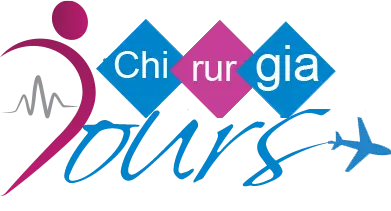According to the World Health Organization, a person is considered obese if their body mass index is greater than 30.
Obesity is now a pandemic, and preventing it is a public health issue.
In order to slow the progression of this chronic disease, several techniques have been developed, whether medical or surgical.
Among the surgical techniques, gastric bypass is mentioned as a radical technique.
It is a bariatric surgery that involves changing the transit of food by reducing the volume of the stomach.
Indeed, gastric bypass allows to short-circuit the stomach by passing food from a stomach bag directly to the small intestine.
This intervention is irreversible.
It is a restrictive and poorly absorbing technique
The patient may use gastric bypass in several cases:
A body mass index BMI 40 kg/m2 (massive obesity)
BMI 35 kg/ m2 so severe obesity associated with a complication that can be relieved by surgery (diabetes, high blood pressure, sleep apnea….)

Table of Contents
ToggleBefore gastric bypass surgery
Given the irreversible nature of the intervention, it is essential to thoroughly study the case before proposing a treatment plan.
The decision will therefore have to be approved by a multidisciplinary team including the surgeon, a dietitian and if necessary a psychologist.
Upon validation of the intervention, the patient will have to undergo several tests as part of his preoperative checkup, so he will be asked to perform a complete blood test and an esophagoduodenal endoscopy to study the different compartments of the digestive tract.
The patient will also be asked to perform clinical and radiological tests to assess cardiac and respiratory function.
Within 48 hours prior to the procedure, the patient should have a visit with the anaesthetist.
In order to avoid complications during the procedure, the patient should not take aspirin for 10 days before the procedure.
Oral contraceptives will be contraindicated one month before the procedure.
In the interest of patient health, it will be recommended to quit smoking at least two weeks before and after surgery.
Gastric bypass surgery
Anesthesia
- L’intervention de bypass gastrique a lieu sous anesthésie générale.
- Le patient devra donc être à jeun le jour de l’opération.
- L’intervention nécessite une hospitalisation de 6 à 7 jours
Le temps opératoire
The principle of gastric bypass is to short-circuit the natural flow of food by connecting the upper portion of the stomach to the middle portion of the small intestine through staples and thus without the removal of any organ.
- The time of the intervention varies between 1h30 and 3h.
- The procedure is performed by laparoscopy.
- The surgeon will then reduce the size of the stomach to a small upper pocket and connect it to the middle part of the small intestine.
- The result is a decrease in the amount of food ingested and a reduction in transit.
After gastric bypass surgery
Postoperative course
Since the procedure is performed by laparoscopy, postoperative pain is rare.
Given the anatomical change there is a risk of vomiting, however the adaptation is done quickly.
Possible complications
Gastric bypass surgery in Tunisia is performed in well-equipped facilities by competent surgeons.
However, there are complications:
- Ulcer, leakage or narrowing of the junction between stomach and small intestine
- Hemorrhages
- Intestinal occlusion
- Dietary deficiencies
- Functional complications such as hypoglycemia after meals, constipation.
Recommendations
Even if the gastric bypass does not force the patient to any dietary restrictions, the latter will have to follow a fairly rigorous diet taking into account the acceleration of his transit.
It is recommended to reduce food portions in each meal.
In order to adapt the patient should eat liquid meals for a week then a molin diet the second week and mixed from the third week.
During the first three months after surgery, the patient will be advised to mix the meat.
It is also recommended to chew well.
The patient will have to follow new eating habits
- Eat only small amounts
- Eating meals sitting
- If the patient feels full he should stop eating
- Do not drink while eating
- Have a balanced and varied diet
Post-operative follow-up
After a gastric bypass is performed, the patient must attend the recovery consultations prescribed by the surgeon.
The first consultation will take place the day after the surgery, so that the surgeon can reassure the patient about the smooth progress of the procedure and answer his questions.
A nurse will be responsible for providing nursing care at the hotel.
Medical follow-up is important after a gastric bypass so the patient will be asked to:
- Conduct a quarterly blood test to identify dietary deficiencies
- Perform an ultrasound or x-ray every year to verify the correct functioning of the new food circuit
The patient should seek advice from the surgeon in case of a problem, the surgeon will answer their questions and address it to a colleague who represents them or contact their attending physician directly.
Result Gastric bypass in Tunisia
The final result is observable only after a period of 12 to 18 months, it is the time necessary for the body to reach a weight stability.
Indeed, during this period we witness a significant weight loss.
Conditions that accompany obesity, such as high cholesterol, are declining.
The gastric bypass allows a weight loss that varies between 70% and 75%, which corresponds to 35 to 40 kg in the first year.
Rate Gastric bypass in Tunisia
The price of a gastric bypass in Tunisia is on average around 4900 €
After a gastric bypass, diet plays a crucial role in the process of recovery and weight loss. Certain foods are generally discouraged or prohibited after this procedure. It is essential to follow the recommendations of your surgeon or dietitian to optimize results. Some of the food categories that are often avoided or limited after a bypass are:
- Foods high in sugar and fat
- High calorie foods
- Red meats and charcuterie
- Fibrous and indigestible foods
- Alcohol
- Hearty meals
- Drink during meals
Le bypass gastrique est une intervention chirurgicale majeure et n'est généralement recommandée que dans certaines conditions spécifiques. Les conditions pour subir un bypass gastrique peuvent varier en fonction des critères médicaux et des évaluations individuelles. Cependant, voici quelques conditions générales qui sont souvent prises en compte :
- Indice de masse corporelle (IMC) élevé
- Échec des méthodes de perte de poids traditionnelles
- Problèmes de santé liés à l'obésité
- Engagement envers un changement de mode de vie
- Évaluation psychologique favorable
- Absence de contre-indications médicales
The minimum weight required for a gastric bypass may vary based on several factors, including size, overall health and other patient-specific medical considerations. Generally, there is no fixed minimum weight, but rather criteria related to body mass index (BMI) and health problems associated with obesity. However, a BMI generally considered necessary to consider gastric bypass is about 35 to 40 or more in the presence of obesity-related comorbidities such as type 2 diabetes, high blood pressure or other serious health problems. The decision to opt for gastric bypass is complex and must be based on a comprehensive medical assessment, including factors such as medical history, weight loss attempts, current health problems and other individual considerations. Patients interested in this procedure should consult a health care professional, especially a bariatric surgeon, to discuss their specific situation and determine if they are suitable candidates for gastric bypass.
After gastric bypass, the capacity of the stomach is significantly reduced, resulting in a decrease in the amount of food that the stomach can hold. Meal portions are significantly reduced, usually to about one to two ounces (30-60 ml) at first, and gradually increased as the patient adapts to the changes. In the first few months after surgery, the focus is often on liquid and semi-liquid foods and then gradually towards more solid textures. Patients are encouraged to eat slowly, chew food carefully and avoid drinking liquids during meals to maximize nutrition and avoid complications. The exact amount that each person can eat after a bypass varies depending on several factors, including individual tolerance, food texture and time since surgery. Following the surgeon’s and nutritionist’s recommendations is essential to ensure successful recovery and adequate nutrition.
Gastric bypass is generally considered an irreversible procedure. However, in some exceptional cases, conversion procedures may be considered to adjust or revise the initial surgery in response to specific complications or problems.
It is important to note that the reversibility of the procedure may depend on a variety of factors, including the specific technique used in the initial gastric bypass and the complexity of the intended conversion. However, these conversion procedures often involve significant risks and considerations. The decision to opt for gastric bypass should be made after a thorough assessment with the bariatric surgeon, who can discuss the benefits, risks and long-term implications of the procedure.
After a gastric bypass, physical activity is generally encouraged but may be initially limited during the immediate recovery period. It is important to follow the recommendations of your surgeon and medical team regarding when to resume exercise. As you recover, physical activity can be gradually integrated into your routine. Light exercise, such as walking, is often recommended in the first few weeks and then you can move on to more intensive activities as your fitness improves. It is essential to consult your medical team before starting any exercise program and follow their personalized advice based on your specific situation. Regular physical activity can play an important role in maintaining good health after a gastric bypass.
The pain after a gastric bypass varies from person to person, and each individual may have a different experience in terms of post-operative discomfort. However, it is normal to feel some pain and discomfort after surgery.
Your medical team will ensure that pain is properly managed by prescribing appropriate analgesic medications. It is essential to follow medical instructions on taking medication and report any additional problems or discomfort to your healthcare team. Pain tends to decrease over time as you recover. It is crucial to follow post-operative instructions, take prescribed medications as directed and communicate effectively with your medical team to ensure optimal recovery.
The duration of recovery after gastric bypass surgery may vary from person to person, but generally patients can expect an initial recovery period of about two to four weeks. During this time, it is recommended that you follow the medical instructions provided by your health care team.
In the first few days after surgery, you may experience fatigue, mild pain and some weakness. It is important to take the time to rest and allow your body to recover.
Your return to daily activities and exercise will depend on your individual progress and the direction of your medical team. It is essential to follow post-operative advice, plan regular follow-up visits and report any unusual problems or symptoms to your health care team.
Yes, after a gastric bypass, it is often recommended to take food supplements to avoid nutritional deficiencies. This surgery reduces the size of the stomach and changes how nutrients are absorbed, which can lead to vitamin and mineral deficiencies.
Your health care team will likely prescribe supplements such as vitamins, minerals, and proteins to ensure adequate nutrition. These supplements may include vitamin B12, iron, calcium, vitamin D, and other essential nutrients.
It is important to follow your doctor’s recommendations for supplementation and to do regular blood tests to monitor your nutritional status. This will ensure that your body receives the necessary nutrients to maintain your health after this surgery.
Excess skin after gastric bypass depends on various factors, such as the amount of weight lost, genetics and quality of the skin. In some cases, plastic surgery may be considered to remove excess skin and improve the figure.
Common procedures include abdominal surgery (abdominoplasty), arm surgery (tracheoplasty) and thigh surgery (cruroplasty). However, not all people will need plastic surgery, and this will depend on individual skin tolerance.
It is recommended that you discuss your aesthetic concerns with your medical team after gastric bypass surgery. They can guide you on the appropriate options, including plastic surgery, if this is considered necessary to improve your physical and emotional well-being.








